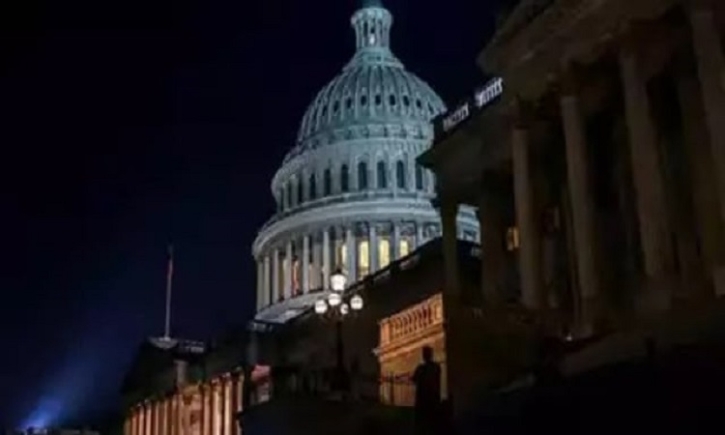US Senate set to pass government funding, averting shutdown
BI Desk || BusinessInsider

Photo: Collected
The leader of the US Senate announced late Friday that Democrats and Republicans had struck a deal on holding votes within hours to finalize the 2024 federal budget and avert a damaging government shutdown.
Senators missed a midnight deadline to pass the $1.2 trillion package keeping the lights on in several key government agencies -- but Democratic Majority Leader Chuck Schumer said a series of votes expected soon would halt any action on winding up government operations, reports BSS/AFP.
"It wasn't easy, but tonight our persistence has been worth it... It is good for the American people that we have reached a bipartisan agreement to finish the job," Schumer said on the Senate floor after hours of tense negotiation that spilled into Saturday morning.
A day of high-stakes drama began on Capitol Hill when the House of Representatives passed a $1.2 trillion, six-bill package Friday lunchtime representing the largest and most contentious section of federal funding.
With cash running out at midnight for three-quarters of the government, including defense and homeland security, the Senate was thrust into a race against the clock to advance the legislation to President Joe Biden's desk.
But the budget negotiations looked like breaking down, with both sides pushing to tweak the legislation to reflect their campaign messaging and priorities ahead of November's presidential election, when Biden faces Trump.
Senators were preparing to adjourn with no deal on holding a vote, which would have prompted the White House Office of Management and Budget (OMB) to begin scaling back operations in key federal agencies on Saturday morning.
But a deal came together just as the midnight deadline arrived and the Senate is now expected to sweep procedural hurdles out of the way to approve the package in the coming hours.
- Shutdown preparations 'ceased' -
"OMB has ceased shutdown preparations because there is a high degree of confidence that Congress will imminently pass the relevant appropriations and the president will sign the bill on Saturday," the White House said in a statement.
"Because obligations of federal funds are incurred and tracked on a daily basis, agencies will not shut down and may continue their normal operations."
Hours earlier Republican House Speaker Mike Johnson had angered his own right flank by relying on Democratic votes to advance the package to the Senate.
Marjorie Taylor Greene, a close ally of Trump, told reporters she had filed a "motion to vacate" the speaker's chair over Johnson's endorsement of the funding package, thrashed out over weeks of tense negotiations between the parties.
The resolution, a rare maneuver that requires a simple majority to pass, comes after the same move led to the removal of previous speaker Kevin McCarthy last fall -- and weeks of infighting as Republicans rejected several potential replacements before settling on Johnson.
The timeline for next steps on Greene's resolution was not immediately clear, although a vote to remove Johnson couldn't take place until April at the earliest, with the House now on a two-week recess.
Greene told CNN "quite a few" Republicans were supporting her effort.
Senate leaders were seeking an agreement on a sped-up timeline to green-light the legislation, which has already been delayed by six months of haggling in a Congress divided almost evenly between Republicans and Democrats.
But the upper chamber insists on arcane procedural rules that can delay votes by days and can only be sidestepped if all 100 members agree.
The shutdown would have affected about 70 percent of government agencies and departments, as the first 30 percent -- covering agriculture, science, veterans' programs, transport and housing -- passed without major drama last month.
Five of the six bills covering the rest of federal spending were also straightforward, but disputes over the funding of homeland security delayed the release of the deal, originally expected last weekend.
Republican hard-liners were angered by a lack of stricter border security provisions in the package, as well as the overall price tag and the elevated speed with which the deal has been negotiated.



































